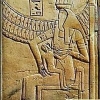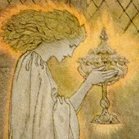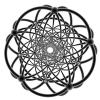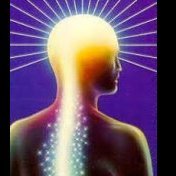Search the Community
Showing results for 'Dream'.
Found 7,591 results
-
Hello emeiwudang, welcome to the forum. I am a 45 years old Swiss counsellor and alternative therapist with a vivid interest in Daoism and martial arts my teenage years. My active interest particularly in Taiji is of a more recent date. Not least a lucid dream experience in an astral/etheric dimension sparked it. I also found much of interest in the books by Jwing Ming Yang. I now practice Yang style Taiji according to Montaigue, currently also just using videos and books, but probably soon supported by private live lessons on Skype. I look forward to further exchange. Michael
-

What is this "wisdom" that they love?
RigdzinTrinley replied to Aetherous's topic in Esoteric and Occult Discussion
I don't know the ancient greek definition of wisdom, or that of the kabbalists, so maybe what I have to say makes no sense in this discussion on the other hand indo -tibetan buddhism is traveling to the west, and many translators have deceided to translate certain sanskrit and tibetan terms as "wisdom" or "wisdom" plus some other word the actual meaning of for example prajna (tib. whiley: she rab) is not literally discriminating wisdom (that captures what prajna means) but the literal tibetan translation would be "supreme cognition" she rab - "she" is cognition or consciousness and "rab" means something like supreme, best etc. the meaning of it is the supreme cognition is to discriminate between what is a correct understanding of the nature of phenomena and what is an incorrect understanding of phenomena the correct understanding of phenomena would be to cognize them as empty/insubstantial/unborn etc. while conventionally arising as illusion like or dream like phenomena through the force of dependent origination the incorrect understanding of phenomena would be to cognize phenomena as substantial/truly established things "outside" that are other then me - a me that is also truly established somewhere "inside" thats Prajna - Discriminating Wisdom in a nutshell (of course countless books are written on what it is, and what it not is - and my understanding is only limited but maybe it adds to the discussion) now there is also Jnana or tib. whiley: Ye she for that there is the commen translation "primordial wisdom" which I think is horrible (like dinosaurus rex wisdom), then there is "timeless awareness" (Richard Barron) which I like more and then there is Keith Dowmans "Nowness Awareness" which from the Dzogchen point of view makes the most sense "Ye" points to the beginninless beginning (which is the timeless Now) and "she" is again cognition or consciousness so its the cognition or consciousness that allways is the case, since the beginning of beginninless samsara upto now (thats enough - not to go too deep down the dzogchen jungle) much more to say about Jnana but other people can do that if they like, I don't like to do that so my question is do you think Wisdom in the greek sense is similar or even the same like Prajna or Jnana?` -
Balance- thanks for quoting directly from the book! I really like how Yang Jwing-Ming is always very detailed oriented. His was the first book that I got on the subject, and even as a beginner I really appreciated his attention to detail- helped me get the lay of the land and to know exactly what I was getting into. Interesting! I've recently tried two experiments to try and figure out where my "dreaming state" is. Basically, in the morning when I wake up I try to stay "in the middle" between wake and dream- when my eyes are open, I see the normal everyday world, but as soon as I close my eyes I am in a dream (there is no blackness at all). But I'll try centering my awareness there and see what happens! As far as the point itself, I too have experienced it (or at least, in its general area). During meditation I'm sometimes able to center my awareness in that location, as well as during qigong (yeah I know, I should be keeping on the lower dantien ) In some systems that require visualization I have tried, I feel like that some visualization is a layer above it ("surface" level), like on a normal thinking level, but when I dig deeper and think from that lower, deeper level inside my mind, it's much clearer, and it feels more integrated with the rest of the world. The "surface level" thought state seems very forced, sort of like I am trying to put a flat piece of paper on an uneven surface and trying to write on it.
-

Why so many skeptics and non-believers on a Tao forum?
Golden Dragon Shining replied to Golden Dragon Shining's topic in The Rabbit Hole
The skeptics to which I refer are the type without any critical thinking/ questioning/ self investigation. Their answer to everything is basically no or whatever the TV, school teacher told them was the truth, these people often live an entire life without any personal development. They'll die with the same beliefs they had/were given when they were a teenager basically. The constant nay sayers generally, who at every dream, innovation or new discovery will say "no". A man says he will build a flying machine they say "it isn't possible", this type of person. A person speaks of Chi and they will say "no such thing", end of conversation. -
What are you waiting for? One's shadow is a wellspring of power, the raw materials for infinite manifestation in light. To acknowledge and leave alone is to nurture... The path of awareness and the path of experience are both available to us. When we acknowledge the root of darkness within and do nothing, it grows. When we choose that path we enter the path of awareness through experience, rather than the pure light of awareness - hitting at the very heart of the meaning of life... To let wither has less power than to enlighten. When you enlighten that acknowledged shadow, it fights for life giving up its primordial power unto thine own will. When you enter the path of awareness through experience - you are walking into the (in this example) alchemy of relationships. If we go within and heal acknowledged shadow we remove the need to manifest inner shadow in the outer holographic illusion. Our biggest asset in the alchemy of relationships is the illusion of other. When we buy into the illusion of darkness within we buy a ticket for the illusion of other in the external dream. She is coming to do the gardening that you neglected, thinking it marvelous to acknowledge said shadow and leave it underground - she hears the calling, creates the scenario, hoes it up to the light of day and leaves it to dry in the sun. Poison it with light before it grows into 3D.
-
dear brother from an empty forest, I will try to have a chat with your doubts, I am not confident I can clear them - because of many reasons (one for example is that I don't get the utterly pure and perfect view of Lord Buddha totally) So let's say instead of talking with me you hang out with a bad ass lama both a scholar a yogi and a gentleman - someone who spend 30+ years working with emptiness on all different levels from madhyamika up to dzogchen or mahamudra. so if that lama is teaching you madhyamika many of the doubts will melt away because there is a being who embodies the innermost meaning of these strange reasonings into reality - basically you see the transformation that happens through studying and working/meditating on emptiness in a correct way. the result of that sits inf ront of you and talks to you, and that can change a lot. I mean the words and reasons and treatises are incredible - its so good we have access to them, but there is also a living tradition - and thats even more incredible (interlude: meditating - > tibetan sgom means to familiarize, so you never just sit down with this information in a nice 7 point posture straight back etc. you work with it as a reality model, a new set of sunglasses that will get rid of all kinds of conceptual sunglasses even the pair labeled "emptiness" sunglasses - and see what happens to you and your perception in the process) OK - that being said I still feel its nice to talk about emptiness, and I feel I got enough teachings to talk about it in a way that won't create more misconceptions for you or me (I least hope that) and maybe we get into the "zone" through that as well First part of your reply or doubt: back to the brainself problem lets talk about ordinary beings first and then I will also mention some "extraordinary" beings and their brainselfs an ordinary beings personality or sense of self is not just altered through brain surgery, its altered also through heart surgery (a lot actually, so there is a special psychologist in austria - and probably in other parts of the western world, consulting with you if you happen to have a heart surgery - because your sense of self will be veeeeery different after) but also lets say you are right handed - you are a tennis pro, you loose your right hand. what to say, I mean what would you do then? note to self: self grasping is nasty what if the germans come and cut of my johnson!?!?!?! the result is a major freak out - and I will never ever be the same that doesn't proof that the form aggregate equals conciousness, doesn't proof it at all, it just shows they are interdependent also neuroplactisity (did I spell that right?) shows that through meditating you change the matter of your brain! So not just cutting a piece of "important" body away alters your perception of reality also changing your perception of reality changes the matter of your brain (and rest of your body by the way)! Ok I edit this a bit later... I need chai! ---------------- that was ordinary beings now lets talk about two (in my view extraordinary beings) Ram Dass and Chögyam Trungpa Rinpoche both had a stroke so there brain and speech box are completely different after that no? I'm not a Doctor so maybe I make this up anyway there was a Ram Dass and a CTRinpoche before and after the Stroke, and those are two very different enteties - the way they manifest and interact with reality seems very different I mean. Now did it fundamentally alter their insight into reality? Not really no, doesn't look like it, I know students of CT Rinpoche and they basically said CT Rinpoche after the Stroke plus a liter of Sake was maybe the most powerful Buddhist teacher to dwell in the western hemisphere at that time. Ok next step of your doubt: brain and conciousness are interdependent - what is more important conciousness or the brain? Lets talk about the Chittamatrin view(simple version, because the profound version I can't talk about). First the Shravaka schools: the Vaibashika and Sautantrika have differences but also share a similarity in how they establish the two truths and the Chittamatrins (mainly Vasubandhu) lets that collaps in a single verse composed of only four lines but first how do the shravaka schools establish the two truths? they talk of two levels basically: the coarse level and the subtle level of subject/object duality (both the coarse and subtle level is seen as substantially established) the coarse level of objects is the relaitve or conventional truth (coarse forms, like a pillar or vase) the coarse level of the subject is the coarse continuum of conciouness grasping at those objects ultimate truth is the subtle level of objects and subjects the subtle level of objects is the infitissimal partless particle - the smallest possible building block of reality - its said to partless, because there is nothing more fundamental or smaller -> thats the ultimate level of objective reality, the deep end every form sound smell etc is composed of that the subtle level of the subject is the shortest indivisble moment of conciousness ALL OF THAT IS SUBSTANTIALLY ESTABLISHED - the subtle and the coarse level is there, really there as a substance! so the chittamatrins need four lines to get rid of the concept of outer forms being substantially established (I skip how they invalidate the subjectiv shortest indivisible moment of conciousness, becasue of lazyness and anyway we talk about brains being "really" there and being maybe, and only maybe the "real" cause for "real" conciousness to emerge...) If six particles are joined to on, this partless one acquires six parts. If these six particles all coincide, then even heaps become a single particle Vasubandhu said that It means basically that the central particle is surrounded by particles in the 6 directions and connects with some of them and some not but if there are connections between particless - then they have parts (the directions of front/back left/right up/down) so they are not the fundamental constituent of reality because you can show that they have still parts - six at least then those six have again directional parts etc.... nothing is there to be found ultimately if people still claim that these partless particles exist and are the most fundamental building block of reality and that they are indivisible and partless then no matter how many partless particles assamble the outcome can only ever be one particle - because they have no parts to connect and because of that fuse into one so the chittamatra school says what we think of matter out there is just a dream - just a mental hologram WITHOUT ANY SUBSTANCE prasangika goes further and also refutes the chittamatra claim that there are no outer objects as matter but they exist as aspects of mind (i.e.: chittamtra says that matter is actually a mental hologram made by karmic imprints and ignorance) - and that this minds nature is empty of subject/object duality and self-aware self-illuminating conciousness, thats the ultimate truth in the cittamatrin view - the rest like thoughts, concepts, outer phenomena is seen as the relative - dreamlike appearences that arise from grasping at this nature of mind (that is empty of subject/object duality) as being an inner perceiver and an outer universe that exists objectively, but all is in fact mind (hence mind only school, but you guys knew that) doesnt there ultimate truth sound alot like rigpa? maybe but only if no one explained the difference between the chittamatrin view and the dzogchen view to you (that I won't do because I can't really and also because I fear the dakinis will cut of my Johnson, if I start talking too much Dzogchen speak on a internet forum) Madhyamika also refutes the position of the chittamatra that there is something like a nondual self-aware self-illuminating conciousness (one that is truly established) - brings me to your last point about madhyamika and the beginningless mental continuum no ultimately there is no continuum of mind (see previous posts on the meaning of "continuum" and hte example of the mala - and time/reincarnation) - but relatively there is an illusion like continuum of mind - also relatively there is time and therefore reincarnation (all that is happening like an illusory display - or like a hologram) A friend of mine told me about a whole section of the Abidharmakosa that deals with the problem of saying coniousness comes from matter - its one of many chapters in a very old buddhist scripture. He said it blew his mind, and of course it doesn't answer or explain anything beyond the fact that its logically impossible to claim that consiouness comes from matter. so where does it come from? where? where? a quick madhyamika question for you guys: is this self aware self illuminating mind that is empty of subject object duality one or different from the aggregates? and whats the problem with the claim no.1 and whats the problem with claim no.2? P.S.: lets talk as if its all just in your head I edited the post for easier comprehension - my english is a bit sloppy sometimes
-
Certainly not so from my point of experience. I was told to look & consentrate on my handsbefore I fell asleep and make a mental note/descision/intent to recontact my hands when dreaming. I woke up in my dream as I was washing my hands. And could recollect the dream afterwards remembering the astonishment of keeping and succeeding with my intent of lucid dreaming. My hands were the first thing I looked at when I woke up the next morning and they were glowing with a fine red hue. Later I was told that C. Castaneda knew of this way. shrug but I aint selling nothing Ah, One last thing. You make the intent then place it in your heart
-
I don't know if I can answer your brainself question fully (because obviously I stilll have clinging to the aggregates as the self), but I will try my best to give you some imput I won't use actual madhyamika reasoning for now, I just try to share some basic teachings on the whole subject of the "brainself" If it doesn't satisfy I will post some quotes and reasonings into the unreality of the self done by Shantideva or Chandrakirti for now maybe this already can clarify some points for you: (I also have chai so it should be productive) first of course if you say that the self is the brain then also a brain in a glass jar is the self - that makes no sense right? also the decaying brain of a corpse would be the self... Ok something first, maybe that helps: buddhist logic and philosophy is a philosphy that is based on grammar and conceptual mind (it uses the shortcomings of conceptual mind and language to point to the enlightened non conceptual nature of mind - to use some dzogchen speak "you can't figure it out so just leave it as it is, don't fabricate") so its not like western logic based on math, its based on grammar and language (a critique of thinking mind made by an enlightened mind using concepts) so the closest we have to Nagarjuna, Chandrakirti, Shantideva, Aryadeva etc. and Buddha is Wittgenstein, not so much Plato or Pythagoras another point is that matter and mind have two different cuntinua - our sense of self is an imputation based on the aggregates (they include all subjective and objective phenomena - mind and matter) so there is merely a link betwenn mind and matter - they are dependently originated. Mind itself doesn't come from matter - thats the buddhist view (buddhism is not a materialist religion) our western flatland view is something like: if you put some chemicals together in a certain way you create a mind - thats non sense because if matter could produce mind then why is a stone not a person? because the way the chemicals are linked together is not correct so it can't create a mind? I don't know I don't know... now a computer could simulate a being: its matterial form and even certain behaviour - if you hit that computer generated orc it will hit back if you leave it in peace the orc won't mind you ... something like that. The simulated Orc obviously has reactive patterns of attachment/aversion is build from matter and information - still doesn't have a mind in a buddhist sense because matter and information (I mean 10010010000001 kind of information) alone can't produce a mind that will reincarnate (but probably here we can have a long strange sci fi discussion... oi weh - I see it coming) Also I feel that the idea: my self or mind is in the brain is an imputed sense of self, not the inborn sense of self (see my post above) why? because indians and tibetans say the mind comes from the heart - they point to their heart when speaking of "Me". Actually we do that too, but I feel because thinking is soooo important in our culture (we do way too much of it) we focus our attention on our brain - the prana goes out of balance (rises upwards) and some people in bad cases have tense shoulders, tense throats, migranes etc... and then yes suddenly our sense of self seems to be connected with our brain not with our heart both are wrong - and an imputed sense of self: means we learned to connect our sense of self with certain parts of our body and that attribution is different in different cultures (its usually never the right nostril btw. I will research why it is never the right nostril later) so is the self to be found within the aggregate of form? heart, brain, nostril what have you? like you said its not just one of those - it can't be - then maybe its a connection of those? So is it in the connection of lungs, heart, brain + the outer environment air, food, warmths etc ? lets say we have a nice corps (died unanatural death but still in a fantastic form), a relatively fresh one (blood is still liquid) - we prepare the lungs heart brain even big and small intestine - Oh what the hack lets just use the whole corpse and plug it into something that pumps in air, water, food - some little device that makes the heart pump etc. would it create a mind stream? and based on that the inborn sense of self? highly questionable - I would say No why? Mind and Matter have a different continuum. basically in indo tibetan buddhism what gives rise to your body is different things the red bindu (blood) of the mother and the white bindu (semen) of the father plus the blue bindu of conciousness not just the blood and semen of mother and father - also conciousness needs to be around to connect them to form a body what gives rise to the mind then? well the previous instant of mind - its a mental continuum without beginning and end the definition of this mental continuum is - luminous and cognizing the definition of matter is different - matter isn't luminous and cognizing so it can't give rise to a luminous and cognizing mind INTERLUDE: if you then think oh wait wait a second - the mental continuum the most subtle mental continuum is my self - yes I found it... nope wrong again (see the example of the mala above) back to the brainself - a corpse or simple matter can't produce a mind so how could the brain alone or in connection with other organs produce one? the sense of self is shown to be merely imputed on top of hte aggregates (form up to consciouness) there is no such self in reality neither one with the aggregates nor different from them lets talk about the aggregate of form (visual form) for a second: like we sit around a table you and me - I make a picture of the table and call it "Tisch" (I'm austrian so my mother tongue is german) you make a little snapshot of the table from another angle and call it a "table" now where is the real substantially existing table? in your head or in my head? are there two tables that are substantially existing? or just one? obviously there is just one thing there that we name a table (but is there really?) - but does me naming the table Tisch make your table less real for someone who doesn't speak english? what about a spanish guy coming along who doesn't speak german or english and says we are both wrong its a "mesa" (is that spanish for table? I don't remember) could it be that without labels or names and the process of naming and labeling phenomena - that there wouldn't be phnenomena out there? can we know the category of phenomena named "table" without the label? thats somethink to think about prasangika doesn't even accept that the aggregates are mere labels (or like the cittamatrins would say the aggregates are merely mind - they don't exist outside - they are just like dream phenomena) - madhyamika goes further and says they are completely unborn (from the point of view of their true nature - relatively speaking there seems to be birth or arising abiding and ceasing of phenomena - but as soon as you use madhyamika reasoning the whole thing becomes like space, completely beyond the conceptual elaboration - you can't make any claims about the true nature of reality - that there is a true nature or not for example - no category, label, concept works) so all phenomena contained withing the 5 aggregates (that means all of reality by the way, when buddhist say 5 aggregates they mean everything that arises) are unborn, unceasing neither one nor many - beyond all conceptual elaboration, the unity of the two truth and the great equanimity of samsara and nirvana (now we just went to nagarjuna country) if you are into Non duality btw. I dare say (thats my opinon) Prasangika madhyamika is the most radical teaching on non duality on planet earth - nagarjuna was waaaaay out there anyway in this and many other ways the aggregates themself are shown (if you use reasoning into the ultimate nature of reality, means prasangika Madhyamika reasoning) to be unborn, so they never came into being, they don't abide, so also they are unceasing thats the result of madhyamika analysis - that phenomena are completely free of conceptual elaboration, all phenomena means the basis of the sense of self (the aggregates) the sense of self nothing can withstand ultimate analysis and is shown to be the union of apperance/emptiness (that takes couple of days if you would study a madhyamika text with a lama) what does nagarjuna mean when he says Peace? he means all conceptual elaborations have been exhausted by meditating on emtpiness - so mind dies - wisdom shines
-
The most powerful dreams I've experienced were betweeen dream and the curls of reality, it is the daily window we open and close. In the most powerful examples of meditations effects on daily transitions of consiousness in my own journey it seems the opportunity for oobe's and lucid dream work is not so much to control te content of dreams ( self centered use of lucidity) but to aid in non attached observation and navigation of the dreamscape mind into deeper or surface levels of consciousness. Vibratoru state exists just as deep dreamless sleep exists. It is very very very interestig to meditate next to someone in rem... I actually enjoy meditating next to a dreaming dog. Sirius!
-
No reading material. The system I teach and practice is the basis for the dream practice. The Gift of the Tao movements I have on DVD are results of dreaming qigong practice. And I am releasing Gift of the Tao 2 this summer. You can read about some of the dream practice experiences in my book but the book doesn't tell you how to - it would be impossible.
-
How can we explain where all these extra souls are coming from…? World Population Growth Year Population 1 200 million 1000 275 million 1500 450 million 1650 500 million 1750 700 million 1804 1 billion 1850 1.2 billion 1900 1.6 billion 1927 2 billion 1950 2.55 billion 1955 2.8 billion 1960 3 billion 1965 3.3 billion 1970 3.7 billion 1975 4 billion 1980 4.5 billion 1985 4.85 billion 1990 5.3 billion 1995 5.7 billion 1999 6 billion 2006 6.5 billion 2009 6.8 billion 2011 7 billion 2025 8 billion 2050 9.4 billion I think that there is one cosmic conscience that sort of loans us a soul for the duration of our time as a human… And past life experiences are us reading into that cosmic conscience, and the past that some experience are not even necessarily our own… If our souls are eternal then a “life” is like a one nights dream… to probably as quickly forgotten, it’s probably are egos at work giving importants to our lives needing to believe what we did here was special and meriting remembering… One soul said to another soul after a looong life here on earth… hey I just had the funniest dream, but I can’t quite remember all of it…
-

How do we find our personal spirit guide?
goldisheavy replied to Edward M's topic in General Discussion
I don't think everyone must have a spirit guide. Do spirit guides have their own spirit guides? Probably not. However, I do believe that anyone who is sincerely interested in a spirit guide and/or sincerely believes in such a possibility has a spirit guide. To contact one during waking, you must have a mind that's flexible enough to accept hearing voices and seeing visions that other people can't see. If other people can also see it, then it's no longer a spirit, but a being like any other. If hearing things and seeing things that others can't hear or see is disturbing, that means you are probably not going to contact your spirit guide during waking in that manner. You can still feel something though. So given this, the most reliable way to contact a spirit guide, if you have one, is in a lucid dream. If you know how to lucid dream, you can call for a spirit guide as soon as you become lucid. A word of warning: an incorporeal being is not necessarily wiser than a flesh-bearing one. Being of the spirit is not a guarantee of anything per se, it's just a different way of being and living compared to the fleshly ways. Spirit guides can have great wisdom, but at the same time, I don't think they are inherently infallible just because they are spirits. I don't have a spirit guide, but my wife does. Her guide tells her some very interesting things (mostly in dreams, as far as I know), but at the same time, when I hear those things, while I agree they are worthy, to my mind, they're not so excellent that I would feel envious of not having a guide. None of us are completely without a guide. If you know how to use it, your own mind is the best guide. If you don't know how to use it, your own mind is the worst enemy. I wish you luck and success and if you really want a spirit guide, I hope you find yours soon. -
I really appreciate this point. Thanks More Pie. If you think about it, memory has to have a limit. Even if you remember 10,000,000 years worth of material, you can't remember 10,000,000+1. Or if you remember +1, then not +2, and so on. At some point remembering more stuff will seem to have no meaning. It seems to me that with that much memory, the situation approaches simply not remembering anything at all, due to the dilution of the specificity of context. The more you remember, the less specific your operating context is. Also, memory is an object of awareness. So remembering an infinite amount seems impossible from that perspective, since objects can't be infinite. Objects are known by their boundaries, by finitude. Another way to look at this, is suppose we start to have a perfect recall from now on. We still can't remember what happened before this life. So even if we could gain the ability of a perfect recall starting now, still have a memory with a starting point, and thus not an infinite one. But suppose it's possible to unlock past memories. In this case you must wonder how is remembering different from constructing new memories? At some point, remembering becomes no different from making new memories out of thin air. And in fact, that's how consciousness operates in dreams. In dreams you seem to remember dream-related context out of thin air. You don't set out to set up your dreams before you go to bed. You shut your eyes and in a moment an entire new context appear, with its own history, with it's own past. So just from 10 minutes of shut eye you can have a dream with a 100 year worth of past events represented in it. So memory is both visionary, empty, and finite because it's only an object of awareness. While memories can be arbitrarily many, and of arbitrarily high quality, they are still finite. Thus no matter how much you remembered, there would still be a point beyond which you couldn't remember. And thus if you only use your memory as a guide and not other higher principle, you'd call yourself a "mortal" based on the limited memory. I guess I've said too much.
-

meditation sex/sleep sex/sexual tantra?
Sloppy Zhang replied to mewtwo's topic in General Discussion
Have a lucid dream. ld4all.com Get to it! Or have really, really vivid daydreams. But once you get to a point where you have all your senses in a lucid dream..... -
I am curious about the vision of Taoist immortality. First a small amount of background info on where I stand with Taoism: I prefer information that's been made available in translation of Lao Tzu (Laozi), Chuang Tzu (Zhuangzi) and Lieh Tzu (Liezi). Upon reading all 3 authors in translation (in English), and in some cases reading 2 or more competing translations, I come out in complete agreement with the 3 big dudes of Taoism. I agree with them. I think they raise interesting questions and tell interesting stories. And I think one can extract a lot of very valuable and practical advice for both day to day life and for esoteric practice. However! And this is a big however, not only is there no mention of immortality in the 3 key Taoist texts, but what's even worse for the seekers of immortality, they appear to advocate embracing the change! All 3 talk about the seasons, and how there is a season for everything. How things take their turns. Chuang Tzu specifically talks about death and asks something to the effect of, "Is death really as bad as we think? Why not embrace it?" This seems completely opposite of the attitude of the immortality seekers (More Pie Guy, and other serious neigong practitioners, can you hear me? ). So I don't think real Taoism has anything to do with immortality. At the same time, I admit I find all the stories of immortals to be interesting and I don't dismiss them out of hand either, but this brings me to my questions. So how does the whole thing work? First, do neigong practitioners really strive for immortality? It seems like many do, but I don't want to assume this. In particular, do any neigong practitioners on this forum want to become immortals? When I look at this world, I think the worst part is not so much that the life is limited in duration or that we are vulnerable, but that things are bureaucratic and that fearful and insecure people take actions that are too extreme for the situation or are not strong enough for the situation (judgment errors), and all these judgment errors accumulate and create a lot of unnecessary suffering. Does anyone consider that if you could live forever on this planet, life would be boring? Are you planning to be am immortal on this planet or will you fly away? Does anyone think that having a lot of personal history is as much a disadvantage as it is an advantage? On the plus side, you remember a lot of lessons, let's say, but on the minus side, as an immortal you carry a lot of historical baggage that prevents you from seeing in new ways. Try to imagine someone with a 1,000,000 year history. Is that helpful? As a way of a small example, when I dream, on most occasions I do not remember who I am in the waking world (unless I am lucid, in which case I cam remember everything about the body being in bed, about who I am in the waking world, and so on). For the most part, not remembering who I am outside the context of a dream is not necessarily a hindrance or something bad. I've not really been inconvenienced by it. There are some things I do want to remember, but they tend to be more of a principle than remembering all the actual life events. So for example, I want to remember in all of my dreams that I am not controlled by my dreams. But I don't necessarily care to remember that in my waking life, 4 hours before I went to sleep, I drank a glass of water. That seems silly and useless. I think most life events are useless to remember. When I die, I don't necessarily want to remember all of this life, but I do want to remember some "takeaway points" if you will. Some useful transcendent principles. I actually would like to forget all the other fluff. But as an immortal, it seems like you'd have a very long (infinite?) personal history with lots of useless junk in it. I also wonder about this: where do troubles come from? For example, why do people form insane bureaucracies? Is it because I am a mortal? So if I become an immortal, suppose I go to the Jade Palace, the land of the immortals. How can I be sure it won't be a yet another crappy bureaucracy? Why does everyone seem to be assuming that every other world out there, especially the ones immortals depart to, are really nice places to be, and so nice in fact, that one would wish to stay there forever in an eternal body? I think it's kind of funny, but imagine you arrive at the Jade Palace where everyone is an immortal, and so, first of all, you're no longer special. You're not an immortal among mortals. Now you are an average Joe in this new world. They tell you to take a number. You see a big line and start waiting. Eventually you reach a little window and they hand you out a little ID card and so on. If these immortals live as a society, surely they'll have conflicting interests. And if that's the case, surely they'll have bureaucracies or worse to manage all the conflicts. On the other hand, maybe immortals are not really social. Maybe immortals are like lone cats that wonder through the universe(s) alone? But then I have to ask this: if you accept a departure from society in your psyche, surely you can be very resplendently happy right here and right now without going anywhere? Social conflicts only have meaning if you really care about society, are interested in it, want to be a social participant and so forth. Then, let's say you are not bothered by any social concerns. Let's say the thing that bothers you is your bodily frailty. Now, suppose you practice neigong to refine your body, or give birth to a new body. This represent a change from one body to another, through effort. If you can accomplish a change in body through effort, doesn't it make sense that you'll need to continue to expend further effort to maintain this body in good shape, and that as soon as you stop expending effort, the body will collapse and die? In other words, if the body is not already and inherently immortal, and if it is your effort that made it immortal, what makes you think the body won't require further effort to stay immortal? This also means constantly worrying about the onset of mortality. So even if you're an immortal, you will still have constant worry and concern that if you're not vigilant, you can revert to mortal condition at any time. Isn't this kind of life as much hassle as being a mortal in the first place? What if you learn to accept bodily modifications, including any and all disease, pain, and so on, and learn to transcend it internally without requiring that your body itself be made immortal? How does that option sound? Another thing is belief in substance. Do you, neigong practitioners, believe in substance? In other words, do you believe you are transmuting and dealing with subtle substances in the body when you practice neigong? In my opinion, if you believe that all phenomena are backed by some universal objectively existent substance, the best way to manipulate and study such substance is with the scientific method. On the other hand, let's say you reject the idea of an ultimate universal objective substance. This would mean you believe all phenomena are manifestations of the primordial objectless awareness, like a blind man seeing rainbows and like a deaf man hearing music, etc., just visions without any substance or objects behind them. This means you can learn to control and to orchestrate these visions, but then, why bother with such substance-tied ideas as energy and energy meridians? You have so much freedom if you believe everything is just mind. So why not use that freedom? Why make up a vision of energy channels that mimic the body's shape? What is the point of that? I can understand if you believe those channels are inherently there because that's how the universal objective substance is arranged, you have to follow what's been given to you at birth. But if you don't believe there's anything objective that's been "given" to you, and if you realize your own body is just a vision, why make another vision on top of it? Why create a vision of energy meridians on top of this already visionary body? Why not, for example, simply dissolve the body, or depart from it? Why tinker with it? So it seems, if you set out to tinker with the body, you must really believe in substance, but if you really believe in substance, then science is the much better way to study and to manipulate substance. But if you don't believe in substance, practices like MCO make very little sense. Is it because MCO is traditional and thus, safe? Is there safety in tradition? Safety in numbers? So if you made up your own practice, you'd feel you are crazy, right? But if you follow what thousands of others have followed, you feel much safer, more sane, right? But if you are that attached to society and social conventions, then how do you expect to live a happy life as an immortal? Please refer to immortal bureaucracy above. Please understand that I am not a doubting Thomas. I believe almost anything is possible. I believe you can go through walls if you want, and leave your footprints in the rock. None of this requires one to be an immortal or to practice MCO. I just think that the idea immortality and the idea that energy practice leads to immortality is... how shall I say it... not consistent with itself. It hides a lot of contradictions and it betrays a lot of hidden weakness. So for example, immortal should be fearless, but how can you develop fearlessness by attaching yourself to an old tradition for safety sake? Big contradiction there. I don't want to inhibit anyone. I am not trying to convince anyone to be like me. I like the different things that people do and like I said, I do believe a lot of strange things are possible. I hope someone can respond to some of the questions I raise for my own enjoyment and elucidation, and hopefully it will be fun for other people as well.
-

Sankaracharya and his confrontation of Buddhist philosophy
RigdzinTrinley replied to stefos's topic in Hindu Discussion
some more lists and definitions of terms: essence, nature and energy is one = non dual gnosis (its all in dharmakaya rigpa, so if we get that we got the essence of all yanas, practices, lineages, transmisions, deities, vows and samayas etc in one practice) essence is emptiness (the empty aspect of the nature of mind) nature is clarity (the appearances, what in sutra is called appearances is called luminosity, or clarity aspect of the nature of mind in Tantra) energy is infinite emanations of compassion (the energy that comes from seeing the union of appearance/emptiness is great compassion, natural and unobstructed) essence is dharmakaya nature is sambhogakaya energy is nirmanakaya the perfectly pure nadis are nirmanakaya (impure nadi is the body and what gives rise to the body) the perfectly pure prana is sambhogakaya (impure prana is the speech and what gives rise to speech) the perfectly pure bindu is dharmakaya (impure bindu is dualistic mind and what gives rise to mind) "all form are deity" how to purify forms into the nirmanakaya (basic view for this to work? form is emptiness) "all sounds are mantra" how to purify energies, vibrations, sounds into the sambhogakaya (sound is emptiness) "all minds are yeshe (nowness awareness)" how to purify all concepts into the dharmakaya (mind is emptiness) for me it all boils down to understanding appaerance/emptiness and that things are constantly happening is only possible because they are empty appearance dream like so its important to understand the union of appearance emptiness, if there is no appaerance you can't talk about emptiness at all, if there is no emptiness you can't talk about appearances at all so dreamlike appearances is the union of appearance/emptiness (there is not even an atom between those two) -

Sankaracharya and his confrontation of Buddhist philosophy
Jeff replied to stefos's topic in Hindu Discussion
Thanks for sharing. Does not the Heart sutra say that Form = Emptiness and also Emptiness = Form? Is not "everything arises like a dream or illusion" only he first part of the Heart sutra? Don't buy into the concept of the three primordial wisdoms: essence, nature, and energy? -
I'm reminded of hexagram 22, which can be seen as the dynamic of grace.... or the dynamic of adornment. Illumination beneath the mountain - who can see it? No one, if it is hidden.... and yet... in those who choose the simple life, have little to speak for except their health.... and yet these people often radiate a happiness, a peace, a grace that can be felt even when not acknowledged. Perhaps the Quakers demonstrate this well. And when the mountain does not hide the fire.... the fire is not contained, not still and stable, not clearly illuminating.... it comes out from within, eager to show itself, to demonstrate its worth though embellishing, exaggerating, adorning the surface at the expense of the internal. Tom Brown Jr. has a book titled Grandfather, and I recall a dream beneath a tree where he followed his spirit guide on a journey up an old stream bed, with forest on either side. The forest on the right was twisted and stagnant, with trees and bushes growing against each other and struggling for light and water. The forest on the left felt peaceful and harmonious. The forest on the left had been inhabited long ago by the tribe of the spirit guide, and had been cultivated very delicately. When they needed to cut a branch for an arrow or bow, they would not take the most suitable branch for that purpose, but would take the branch that might end up struggling with others, that might be the weakest; they would take that which when removed would have the most harmonious result on the forest over time. When we understand how our actions manifest over time, we can choose to avoid actions that do not serve where we want to end up. If we want to be healthy and live a long, happy life, we might come to understand that a simple life without embellishment and unnecessary desires may actually have the best result, while many other choices merely spend the internal to indulge some desire that will only serve us temporarily. Of course everything is relative. We must all choose on our own.
-
Yes its good to talk about time, because its seems so natural to most people (including me) - I rarely question time I never read much of Eckhart Tolle, but still from the Buddhist point of view (the Madhyamika point of view) his statement is true but not for 100% because time is relatively appearing, dreamlike but appearing - and so is reincarnation also the idea of tomorrow is very workable, it makes alot of sense to have that concept. Reincarnation is workable in the same way (even if most beings don't remember past lives or see future lives, but then who knows how tomorrows tea will taste, I mean have the direct experience of tomorrows tea already now? or who can really recall for example what exactly they thought 5 minutes before they read this?) the continuity of concisousness is relatively true - like a dream is true or a mirage is true and also: as the buddha is unborn, how could the buddha cease (be extinct?) like the awakened one said: "my dreamlike form appeared to dreamlike beings to show them the dreamlike path to lead to dreamlike nirvana" or shantideva: (I quote the meaning not the exact words of the translation) "the bodhisattva is allowed only one illusion, namely that there is a result to the path" I have by the way no idea what all of this means but those indo tibetan teachings sure sound great to me
-
SLEEP Sleep is like a swift train Plunging into long black tunnels, Slicing day with red and black light. No worry about the skeleton engineer. Head to pillow is like head to track, Listening to the rumble of destiny, Knowing that the opening will come. In sleep, as in the tunnels, The sound seems ever closer. When you sleep, some insist that the world as you know it ceases to exist. The world exists because something inside of you asserts that it is so. When awake, are you then no longer dreaming? Or are you just dreaming another dream? Going to sleep takes letting go. As any insomniac will tell you, it can't be forced. But we so identify control with waking, is it possible that the uncontrolled aspect of sleep is an equal reality? Sleep seems so real, and then we awake. Waking life seems so real, and yet we need to let go of it every day. This strange contrast is one that those who follow Tao contemplate continually. If life is mere shifting from one dream to another, they constantly ask : What is truly real?
-
The animals James works with have been terribly abused. They are not just any wild animals that he chooses to pacify. Maybe watching him work with the abused horses would give you a better idea of what he is doing. He sits with the animals in what he calls "mindful regard," joining them, drawing them into a trusting space, totally beautiful, from my perspective. They become totally relaxed, both funny and awesome to watch. To me this is amazing respect for the animals and a beginning to heal the trials they have been through. Their responses to the work are beyond amazing. If you want to understand more what he is doing, look for "I Have a Dream- -- the interview" on youtube.
- 11 replies
-
- 2
-

-
- The Trust Technique
- James French
- (and 4 more)
-

help with clearing energy blocks and moving forward.
Taoway replied to Taoway's topic in The Rabbit Hole
this means alot to me, and i have questioned if that is the path i should take right now. Mainly pursuing my dream of being a chinese medicine practicioner / healer. But the stages in my life seem to take me to learning the trade of tattoo art first. To learn independence. From there it will be a bridge to what ever else i hope to achieve since it will give me the money to pay for college and a place to live on my own. But as for studying towards something, this can be done outside of a university. And i have often thought that if only i directed this excess energy toward gaining knowledge consitently then it will find balance. But i find it hard to be consitant. But with your advice i will be more diciplined with it . Knowledge is a gateway to life experiences. I want to learn japanese so i can connect with japanese people. thats one gate way. And i will take out more of my books and dive further into my studies . thank you -

Seeing, Recognising & Maintaining One's Enlightening Potential
C T replied to C T's topic in Buddhist Textual Studies
SARAHA Behold! Yogis who abide in the immutable nature of nonduality possess not the least desire for accepting or rejecting. Since I neither hold nor discard anything, there is nothing I would tell you, my sons, to do. Just as the "holy grail" (mani) of the mind has no objective substantiality, so the conduct of a yogi is a life devoid of external trappings. Even though we talk of various ways of behaviour, the yogi acts directly out of his perception. And since that is not determined [by external rules or conditions], the yogis conduct is completely free and unconditioned. Like an innocent child, or a crazy person without premeditation, so one should act. Emaho! Mind is like a lotus, growing up out of the mud of Samsara! How ever many are the defilements, it remains unstained. Let food and drink, sensual pleasures, or the afflictions of mind and body, be just as they are. Whatever occurs, there is nothing to do or liberate. In the state of realization's spontaneous display of conduct, upon witnessing the suffering of worldly beings, tears of overwhelming compassion naturally flow forth. Taking on their suffering and giving in return one's own well-being, thus one engages in healing others for their sake. Examining what is, one finds that reality is free from the three constructs of subject, object and medium. Worldly existence is unreal; it is like a dream or a magical illusion. Free of attachment and aversion, the yogi experiences a pure joy devoid of sorrow, and acts like a master of illusion putting on a performance. Excerpt from: The Mahamudra Dohakosa -
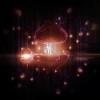
Would you want to come to Earth again?
Everything replied to Everything's topic in General Discussion
Hahahaha. I would love to have an ET buddy. That would be so cool. I'd want to ride a spaceship one time too. I hear yahyel is coming to Earth in my lifetime, so who knows. I'd buy a vacation to a spaceship if that was possible. Maybe in 2030 when we join the galactic alliance. I bet they have way cooler stuff then Alcohol, who knows. Maybe a conscious dream simulator. God knows how far ahead their technology is. I get all excited just thinking about it. My interest in et's goes through the roof. They much be so peaceful and loving, I'm sure. And wise too or playful, who knows what kinds of et's are out there. I bet all kinds. But these are just dreams and fantasies. God we've been alone on this planet for such a long time and the politics of now wont really allow for much ET contact. Everyone's always busy with their own lifes. Me too. It gets boring. But there are lots of fun people on this planet too. Maybe I should meet more people. Have more social contacts. I'm sure that I relate to human humor most of all. Whats better than to laugh with my fellow human beings. That's good enough. And ET's, well, maybe one day. I hope. Our technology is advanced en9ugh to go to outer space. So time for ET contact is emminent, I presume. -
haha, yeah. I always wanna consume as much time as I can with each activity. Cause dream time is best time. Love sleeping.


